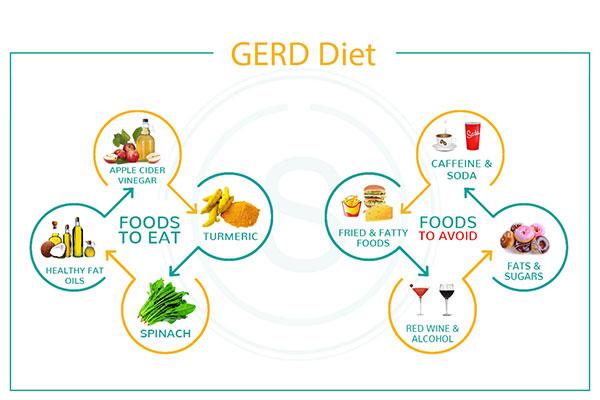Are you experiencing the symptoms of GERD?
Gastroesophageal reflux disease (GERD) is a digestive disorder in which stomach acid irritates the food pipelining. This GERD is usually a long-term condition that results in uncomfortable symptoms including heartburn and pain in the upper abdomen. The severity of this regurgitation often relates to diet and lifestyle.
Eating the right foods with proper diet will help in relieving GERD symptoms. For this reason, the top gastroenterologists at SMILES here assist you with foods to avoid & how diet plays a key role to control Gastroesophageal reflux disease.
Foods to eat with GERD
There are plenty of foods that help manage Gastroesophageal reflux disease and reduce the frequency of symptoms.
The following are the best foods to beat GERD
- ● Fruits: Avoid citrus fruits like oranges, lemons, and grapefruit as they are high in acid content. Other fruits such as bananas, apples, melons, and pears are typically are advised for the GERD diet.
- ● Vegetables: Vegetables are low in fat and sugar that help reduce stomach acid. Good options include broccoli, green beans, asparagus, spinach, and Brussels sprouts.
- ● Whole grains: Whole grains such as Oats and quinoa are excellent sources of fiber that lower the risk of acid reflux and GERD. Other options of fiber include whole-grain bread and whole-grain rice.
- ● Egg whites: Since people with GERD should avoid fats, eggs are a good option. But, stay away from egg yolks, though which are high in fat and more likely to cause GERD symptoms.
- ● Ginger: Ginger is often recommended as a natural remedy for a variety of stomach ailments. Try adding ginger to your diet or drink ginger tea after meals that help reduce acid reflux symptoms.
- ● Chewing gum: Chewing gum increases saliva production and helps reduce the amount of acid felt in the esophagus. This can further lower the risk of developing Gastroesophageal reflux disease.
- ● Lean meats: Lean meats, such as chicken or turkey and seafood contain low fat and reduce the symptoms of acid reflux. Always try them grilled, baked or poached rather than deep fry.
- ● Healthy fats: Sources that include avocados, flaxseed, olive oil, sesame oil, and sunflower oil is a necessary part of the GERD diet. Reduce saturated fats or trans fat, replace them with these healthier fats.
Foods to avoid with GERD
While the above foods improve GERD symptoms, certain foods tend to exacerbate your symptoms, including heartburn, chest pain, difficulty swallowing and regurgitation of food.
People with GERD symptoms are often advised to avoid the foods include:
- ● Caffeine: Caffeinated beverages such as coffee and tea have been identified as a possible trigger for heartburn in some people. Caffeine may trigger other symptoms of GERD because it can relax the lower esophageal sphincter(LES).
- ● Carbonated beverages: Soda and other carbonated beverages may raise stomach acid that leads to gastroesophageal reflux. This is because bubbles of carbonation expand inside your stomach and the increased pressure leas to acid reflux.
- ● Tomatoes: Tomatoes are highly acidic and likely to cause heartburn. They are also believed to aggravate GERD symptoms by increasing stomach acid. Tomatoes can also cause irritation to the damaged lining of the esophagus.
- ● Onions: Onions, particularly raw onions are a common trigger for heartburn. Like caffeine and carbonated beverages, onions may relax the lower esophageal sphincter, which may cause gastroesophageal reflux. In addition, onions are high in fermentable fiber that promotes GERD symptoms.
- ● High-fat foods: Fried and Fatty foods can cause the lower esophageal sphincter to relax, allowing stomach acid to back up into the esophagus. Eating high-fat foods puts you at a greater risk of reflux symptoms. These foods are also harder to digest which makes stomach delay in emptying.
- ● Peppermint: Peppermint is thought to worsen GERD symptoms by relaxing the sphincter muscle that lay between the stomach and the esophagus. This allows the acid in the stomach to flow back into the esophagus.
- ● Garlic: Acid reflux or GERD happens when stomach acid flows backwards into the esophagus. Foods such as Garlic can cause this to occur more frequently. Although garlic has many health benefits, it is not recommended if you have acid reflux.
If the above foods do not help relieve your symptoms of GERD, then immediately consult ourbest gastroenterologists in Bangalore Dr Parameshwara C M.
Do not ignore your heartburn or acid reflux or GERD because chronic acid reflux can lead to esophageal cancer.

